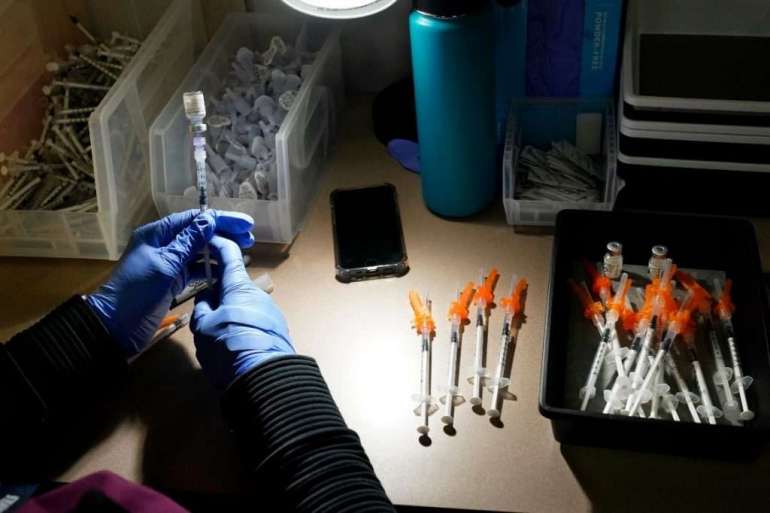Top U.S. officials see booster shots as inevitable

The Biden administration has repeatedly downplayed the need for additional shots, wary of undermining confidence in the vaccines and getting ahead of definitive evidence that boosters will be required. The CDC and FDA jointly rebuked Pfizer’s announcement, asserting that “Americans who have been fully vaccinated do not need a booster at this time.”
Yet many administration officials have come to view another round of Covid-19 shots as highly likely, said four people familiar with the situation.
“Fully vaccinated people do not need a shot at this time,” said one senior administration official, stressing that the government’s assessment could change. “Everybody wants to see the science.”
The official said there is a recognition that immunity is waning among high-risk people, whose immune systems were generally weaker to begin with. But questions remain about how significant any decrease in protection has been, and whether Covid-19 infections have begun to increase in high-risk but fully vaccinated people — such as elderly nursing home residents and people who are immunocompromised, including transplant recipients.
“The only decision we made was to buy enough [vaccine] so it’s there if we need it,” the official said.
Top Biden health officials are scheduled to meet with Pfizer on Monday afternoon to discuss the company’s booster-shot plans and review its data. The briefing is not expected to materially affect the government’s broader vaccine strategy, and officials said that any recommendation that Americans get booster shots will go through a regimented process that involves formal evaluation by a CDC advisory panel.
White House press secretary Jen Psaki said Monday that any determination on booster shots would be made by the the government’s health agencies.
“We made clear last week that wasn’t a recommendation begin made at this time,” she said. “If they make a conclusion that booster shots are recommended, they will provide that information publicly and it’ll be based on a large range of data.”
Top officials at the National Institutes of Health have urged caution on boosters, arguing there is no concrete data to support their use at this time, according to two senior administration officials with knowledge of the agency’s internal deliberations.
Three officials said there is reluctance across the health department to present any booster plan without hard evidence from the vaccine makers that an extra shot can provide a meaningful benefit. Multiple companies have booster shots in ongoing clinical trials — some funded by the NIH — and Johnson & Johnson is expected to share data this month on whether a a second dose of its one-shot vaccine provides stronger protection.
Recent reports from Israel suggesting that some breakthrough infections have occurred among vaccinated people as the Delta variant spreads have raised fresh questions among senior administration officials. They want to see Israel’s raw data before deciding whether boosters are warranted in the U.S.
But other countries, including the United Kingdom and France, are forging ahead with booster shot plans — and Israel has begun administering them — adding pressure for the U.S. to sketch out a framework even if Biden’s team insists it needs more data.
Contracts between the U.S. and Covid-19 vaccine manufacturers allow for the delivery of additional doses for booster shots as well as extra doses needed for international donation, according to an individual with direct knowledge of the situation. But without solid data to support the move domestically, the rollout of the booster could be delayed “by several months,” the source said.